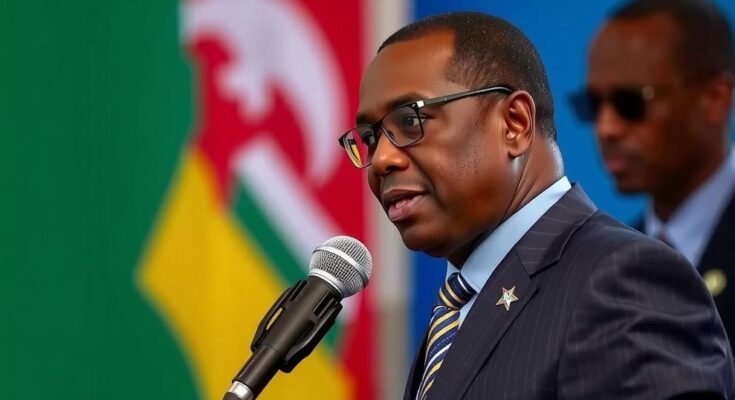Daniel Chapo of the Frelimo party has been declared the winner of Mozambique’s presidential election, which took place on October 9, 2023. Winning approximately 71 percent of the votes, Chapo’s election victory is marred by allegations of fraud and violent protests amid accusations of election rigging by his party. This election may serve as one of the most significant challenges to Frelimo’s governance since the country’s independence in 1975, particularly in light of ongoing unrest in Cabo Delgado due to an insurgency by Islamist extremists.
Mozambique has concluded its presidential election with the announcement of Daniel Chapo as the winner, representing the ruling Frelimo party, which has maintained governance over the nation for nearly half a century. The electoral commission revealed that Mr. Chapo secured approximately 71 percent of the votes cast on October 9, thus succeeding Filipe Nyusi, who has reached the constitutional limit of two five-year terms in office. However, this election has been overshadowed by serious concerns regarding violence and rampant allegations of fraud. Following the election, the capital city of Maputo witnessed significant unrest, marked by confrontations between police and demonstrators. These protests were fueled by accusations against Frelimo of election rigging and the alleged shooting of opposition supporters. In a response to these claims, Frelimo adamantly denied any involvement in fraudulent activities or the violent incidents surrounding the election, asserting that the electoral outcome truly reflects the populace’s will. Daniel Chapo’s victory arrives at a tumultuous period for Mozambique, particularly given the ongoing insurgency by Islamist militants in the northern Cabo Delgado province, which has exacerbated societal divisions linked to wealth distribution from the country’s natural resources. The electoral circumstances have emerged as a critical challenge to Frelimo’s longstanding dominance since Mozambique gained independence from Portugal in 1975 and successfully navigated a subsequent civil war. As Mozambique transitions to a new presidency, the legitimacy of this election and the responses to the resultant civil strife pose significant implications for the current and future political landscape.
Mozambique, a southern African nation, has been ruled by the Frelimo party since its independence in 1975. The country faces significant challenges, including a brutal insurgency in Cabo Delgado, where Islamist extremists have sought to exploit local grievances amid a backdrop of poverty and wealth disparity exacerbated by the extraction of natural resources. These dynamics have played a critical role in shaping the political and social environment leading up to the most recent electoral contest, which showcased deep divisions within Mozambique’s society. The recent election has ignited questions surrounding electoral integrity, as protests erupted in response to claims of election manipulation by the ruling party, reflecting broader frustrations prevalent in the nation.
In conclusion, Daniel Chapo’s election as the president of Mozambique unfolds within a contentious atmosphere, rife with allegations of electoral malpractice and public dissatisfaction. The Frelimo party, despite its long-standing authority, now faces one of its greatest tests amid societal unrest and calls for accountability. This transitional phase is crucial not only for the political future of Mozambique but also for its citizens grappling with the consequences of governance and resource management in a struggling economy.
Original Source: www.nytimes.com




